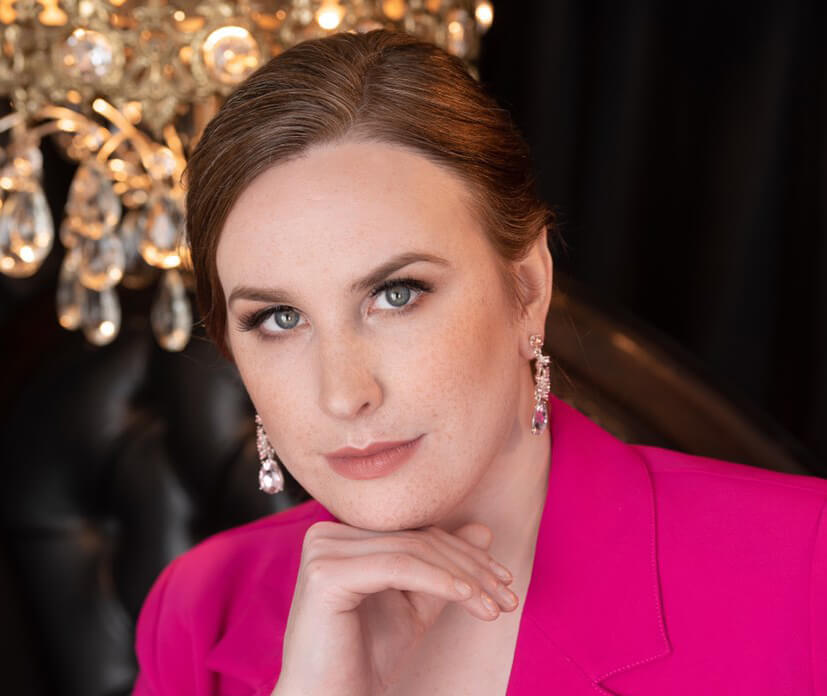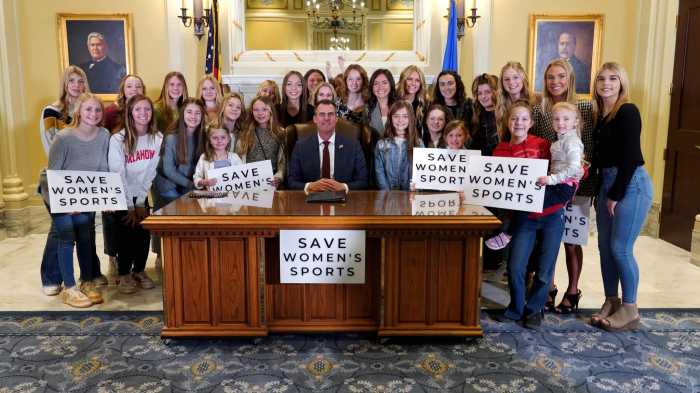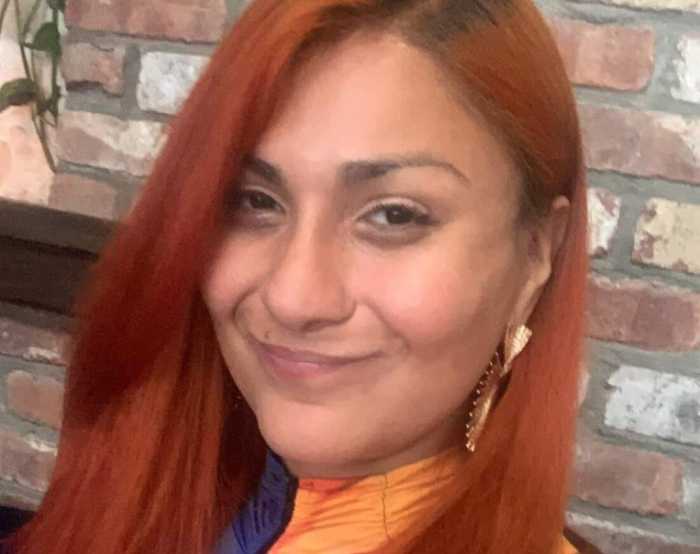A three-judge panel of the US Court of Appeals for the Ninth Circuit ruled on November 2 in Green v. Miss United States of America, LLC, that the defendant had a First Amendment free speech right to refuse to allow a transgender woman to participate in its Oregon pageant for 2019. The defendants holds state pageants in various age classifications as well as an annual national pageant, whose winner receives a variety of benefits. The defendant’s published qualifications require that each contestant be a “natural born female.”
Anita Green began identifying as transgender at age 17 and subsequently went through a complete physical transition, including feminizing hormones and surgical alteration. After her transition, she began competing in “female beauty pageants,” according to the opinion for a majority of the panel by Circuit Judge Lawrence VanDyke. These included a Miss Montana pageant, in which she participated until she “aged out” of the qualifications for that pageant. She moved to Oregon and continued competing, including in “Miss Earth” pageants held in Oregon and Nevada.
Late in 2018, she began exchanging messages on Facebook with Tanice Smith, Miss United States of America’s national director, inquiring about participation in the organization’s Oregon pageant for the next year. Smith sent her the rules, and she responded, “you know I’m transgender, right?” and “your rules seem to discriminate against transgender women.” Smith responded that she had not known Green was transgender, and that Miss United States of America is a “natural pageant” and did not anticipate changing its eligibility requirements. Smith offered to help Green find “a pageant you would qualify for,” but Green instead contacted a lawyer and filed suit in federal court charging a violation of the Oregon Public Accommodations Act (OPAA), which prohibits discrimination because of gender identity.
Her lawsuit was filed under the federal court’s “diversity jurisdiction,” which allows people with state law claims to file in federal court if the parties are “citizens” of different states. The Miss America organization is not a “citizen” of Oregon, where Green lives. Her case was presented to District Judge Michael W. Mosman. Assuming that the Oregon Miss America Pageant is subject to the OPAA, Judge Mosman ruled that the defendant had a right to exclude transgender people based on the First Amendment’s protection for freedom of expressive association.
Green appealed. Although Judge VanDyke agreed with Judge Mosman’s analysis, he needed to switch his focus to the First Amendment’s protection for freedom of speech in order to get the vote of Senior Circuit Judge Carlos Bea. This two-member panel majority concluded that the US Supreme Court’s ruling in Hurley v. Irish-American Gay, Lesbian and Bisexual Group of Boston (1995) controlled the outcome in this case.
“As with theater, cinema, or the Super Bowl halftime show, beauty pageants combine speech with live performances such as music and dancing to express a message,” wrote VanDyke. “And while the content of that message varies from pageant to pageant, it is commonly understood that beauty pageants are generally designed to express the ‘ideal version of American womanhood.’ In doing so, pageants ‘provide communities with the opportunity to articulate the norms of appropriate femininity both for themselves and for spectators alike,’” quoting from an anthropology textbook.
Accepting this proposition, the panel majority found that the Miss United States of America eligibility requirements were a method of articulating to the public the organization’s message as to the “ideal version of American womanhood.” “Put differently,” wrote VanDyke, “the Pageant’s message cannot be divorced from the Pageant’s selection and evaluation of contestants. This interdependent dynamic between medium and message is well-established and well-protected in our caselaw.”
Just as the Supreme Court ruled that the sponsors of the Boston St. Patrick’s Day Parade could not be required by the state to include an LGBTQ group with its self-identifying banner in their parade, thus introducing messaging that the sponsors did not want to include in their expressive activity, the Miss United States of America organization could not be required to include a message that they did not want to transmit: that a transgender woman fits their view of the “ideal version of American womanhood.”
This holding by the majority is supplemented by a separate concurring opinion by Judge VanDyke, explaining his agreement with Judge Mosman’s conclusion that this can also be decided as a First Amendment expressive association case, in which the Miss Oregon Pageant would be seen as a group activity undertaken to express a particular message, and the pageant was entitled to exclude somebody whose inclusion would alter its message.
Senior Circuit Judge Susan Graber dissented, arguing that the district court erred by failing first to consider whether the Miss United States of America pageant is a “public accommodation” for purposes of the Oregon anti-discrimination statute. She pointed out that under “diversity jurisdiction,” a federal court is supposed to apply state laws consistent with their interpretation by the state courts. If the defendant is not a public accommodation, then the law does not apply to it, and the court has no need to consider the constitutional arguments on which it relied to get the court to reject Anita Green’s claim. She argued that in a diversity case, the court was required to follow the approach of Oregon courts on this issue, and cited cases where those courts disposed of cases on statutory grounds to avoid ruling on constitutional defenses.
Countering her argument, Judge VanDyke cited some cases in which Oregon courts had not taken that approach. In addition, he observed that in the Hurley case on which the majority of the panel relied, the Supreme Court stated that the application of the public accommodations law to the St. Patrick’s Day Parade was an “unusual” interpretation of that law, but because the Massachusetts Supreme Judicial Court had voted 4-3 to apply the law and to rule against the parade organizers, the Supreme Court was stuck with that interpretation, since the highest court of a state is the authoritative interpreter of the state’s laws. However, he came up with several examples of other cases where the Supreme Court had affirmed constitutional rulings even though a lower court had not first analyzed the plaintiff’s statutory claims to determine whether there was any need to resort to constitutional analysis.
Judge Graber also challenged the majority’s First Amendment free speech conclusion. “We must assume that Defendant is a business that offers services to the public, as defined by the OPAA, because otherwise the OPAA would not apply to it,” she wrote. “A law that compels such a business to provide its services to a customer despite that business owner’s prejudices neither improperly compels speech not violates the owner’s freedom of association,” she continued, rejecting both First Amendment defenses. She pointed out that the defendant is, “first and foremost, a for-profit corporation acting in a marketplace.” She detailed the revenue-generating aspects of the business. “In sum,” she wrote, “the record before us suggests that Defendant’s for-profit business model has more in common with a multi-level marketing business than with the parade in Hurley, and demonstrates that Defendant is a commercial association,” not an “expressive association.” And, as a business offering its services to “the public,” it “must provide its services to customers with protected statuses even if it would prefer not to do so. That is all that the OPAA requires. It does not compel speech and it does not violate the Defendant’s right to associate freely. . . Defendant cannot alter the nature of the business transaction by claiming that it has a discriminatory belief that it hopes to further through its business.”
Providing examples of her analysis, Judge Graber wrote: “A white supremacist who operates a bowling alley cannot transform his business into an expressive entity by naming the building ‘White Bowling,’ claiming that he intends to use the bowling alley to express his racist beliefs, and then turning away Black bowlers who hope to compete in a bowling league. Nor can a militant feminist owner of a hotel chain, ‘A Room of One’s Own,’ refuse to allow men to stay at her hotels and claim that her organization should receive heightened First Amendment protections because she hopes to further her beliefs with her business.”
Her conclusion: “The State has a compelling interest in preventing discrimination on the part of commercial entities that offer their services to the public. Any burden faced by such public accommodation’s being required to offer services without discriminating is minimal, and the non-discrimination policy neither compels speech nor violates the freedom of association.” This is entirely different from Hurley, she insisted, where a non-profit civic organization was organizing a march, which the Supreme Court called a “quintessential expressive activity,” and was entitled to control the message of that march.
The 2-1 panel decision was a “party line vote.” Judge VanDyke was appointed by President Donald Trump and Senior Judge Bea was appointed by President George W. Bush, both Republicans. Senior Judge Graber was appointed by President Bill Clinton, a Democrat. Miss United States of America is represented by Alliance Defending Freedom, a conservative religious litigation group that argues for First Amendment rights to discriminate against LGBTQ people in a variety of cases. Anita Green is represented by Portland, Oregon, attorney Shenoa Payne.
If Green wants to pursue this further, she can petition the Ninth Circuit for en banc review, which would involve expanding the panel to 11 judges and rearguing the case. There are 29 active judges in the Ninth Circuit, to which Trump appointed 10 judges and President Joe Biden has already appointed six. There are six active judges appointed by President Barack Obama, three appointed by President George W. Bush, and four appointed by President Bill Clinton. An en banc panel would include the chief judge (an Obama appointee), the three panel judges, and seven others drawn at random. A majority of the 29 active judges of the circuit would have to agree to provide en banc review for it to take place. Alternatively, Green could petition the US Supreme Court to take the case directly.



































